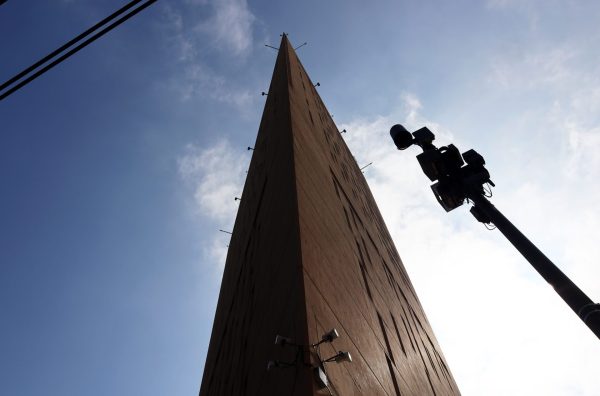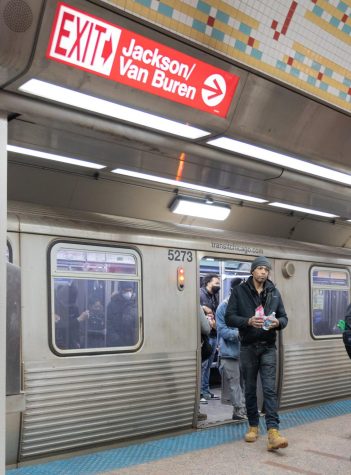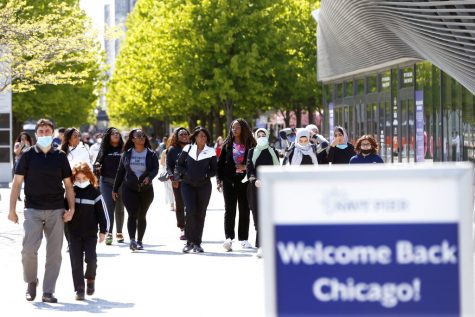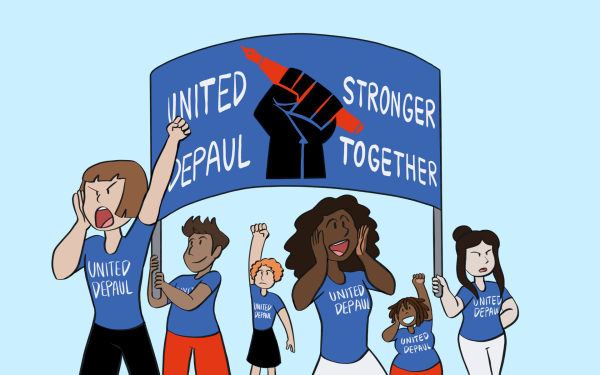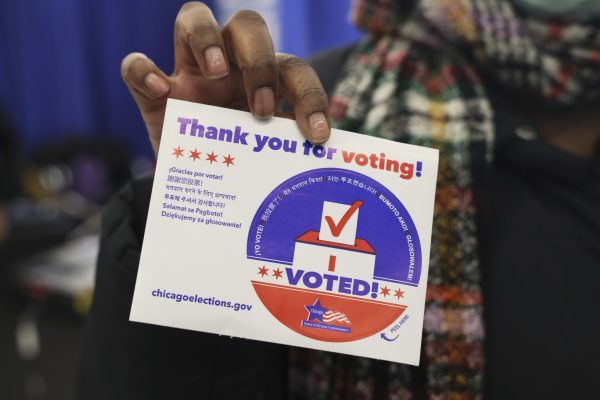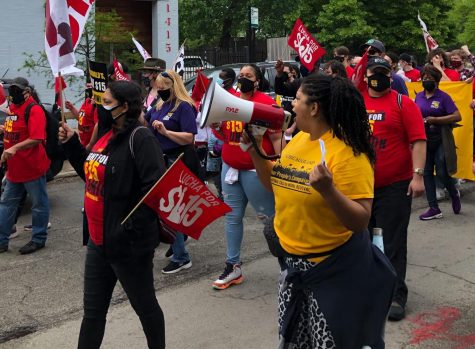How the minimum wage increase will affect DePaul student employees
When DePaul University junior Breya Jones heard that Illinois was raising the minimum wage to $15 per hour, she felt like it was a validation that her work is valued by the community. Like many studying at DePaul, she’s a student employee at the university.
“It makes me feel like even though I’m a student-worker, that my work matters to people, and they know that I’m putting out good work even though I’m just a student-worker,” Jones said.
In February, Illinois Governor J.B. Pritzker signed into law a bill that will gradually raise the Illinois minimum wage from the current $8.25 to $15 by the year 2025. Chicago’s minimum wage has already been higher than the rest of the state, being set on a similar path for gradual increases by Mayor Rahm Emanuel in 2010.
The last of these expected Chicago minimum wage increases will be from the current $12 per hour to $13 per hour on July 1.
While statewide opposition to the increase has claimed that higher wages will put stressors on businesses, DePaul University administration doesn’t seem too concerned.
In a statement from DePaul’s Office of Public Relations, spokesperson Carol Hughes said that the university has adequately budgeted for any changes in the minimum wage, and that “[n]o funds will be redistributed from existing staff payrolls.”
“This has happened for numerous years, so it’s kind of down pat in terms of what we need to do,” said Sarah Carbone, the Associate Director for DePaul’s Office of Student Employment. “Since the university has been increasing student employee wages every year since 2010 to keep pace with the required Chicago minimum wage, further increases won’t be a surprise.”
“I think the first time it happened there were a lot of questions,” said Carbone. “But since this has happened every year, people know that, ‘ok, this is going to be July 1, this is going to happen’ type thing.”
According to Carbone, Hughes reached out to her concerning what she would would say when interviewed for this story. Hughes said this was to make sure answers weren’t duplicated.
Something Jones was concerned about with the wage increase was the possibility that DePaul might cut down on the number of student employees hired, but both Carbone and Hughes said this won’t be an issue.
“No changes are planned,” said Hughes in an email statement. “Student employment is handled in a decentralized manner at DePaul where students are hired by colleges and departments.”
As a part of the Office of Student Employment, Carbone has collected data on the number of overall student employees and positions filled at DePaul over the years, and has found that these numbers stayed consistent from year to year.
For example, there were 4,058 students employed by the university in the 2013-2014 fiscal year. In the 2017-2018 fiscal year, there were 4,099. Even with $1 increases in the minimum wage each year, the school has maintained fairly consistent numbers in terms of student employment.
Jones, who works at DePaul’s John T. Richardson Library, thinks most students are excited about further wage increases. “All the people working here are for the minimum wage increase,” she said. “They think it’s great.”
Wages are only a part of the student employee experience in Jones’s eyes though, and an important thing she thinks is lacking is better communication and transparency between the university and student employees.
A former Social Justice Advocate at the now-shuttered Center for Identity, Inclusion and Social Change, Jones was blindsided when she lost her university job in 2017. “They kept saying don’t worry about it, we’re not going to close the Center, you’re going to have your jobs,” she said.
Jones finished the 2016-2017 school year thinking that when she came back after the summer break, she’d still be employed by the university. “They said we’d still have all our jobs, and then a month before school started, [the administration said] ‘oh your jobs don’t exist, we don’t have the money to pay you,’” Jones said.
Jones thinks communication is better now that she’s employed by the library, but she’s still wary of the relationship to the university. “I understand that I’m not a full-time worker, but I still work in this office, I rely on this office to pay me,” Jones said. “I need to know what’s going on.”
“Student workers are a big part of making sure this school functions. If you took all the student workers away this school would fall apart.”
Even though wages will rise to $13 per hour in July, mayoral candidate Toni Preckwinkle has already pledged to raise the Chicago minimum wage to $15 ahead of the scheduled Illinois raise.
“What I’ve proposed is that we raise the minimum wage 50 cents every six months until we get to $15,” Preckwinkle said in January.
Preckwinkle’s opponent, Lori Lightfoot, announced support for a a $15 minimum wage in September 2018, as well as support for a universal basic income in Chicago.
Currently, 1.4 million Illinois residents make less than $15 dollars per hour, according to the Chicago Tribune.
“For nine long years, there were many forces that were arrayed against giving a raise to the people who work so hard to provide home care for seniors, child care for toddlers, who wash dishes at the diner, and who farm our fields,” Pritzker said before signing into law the new wage increase. “Today is a victory for the cause of economic justice.”



